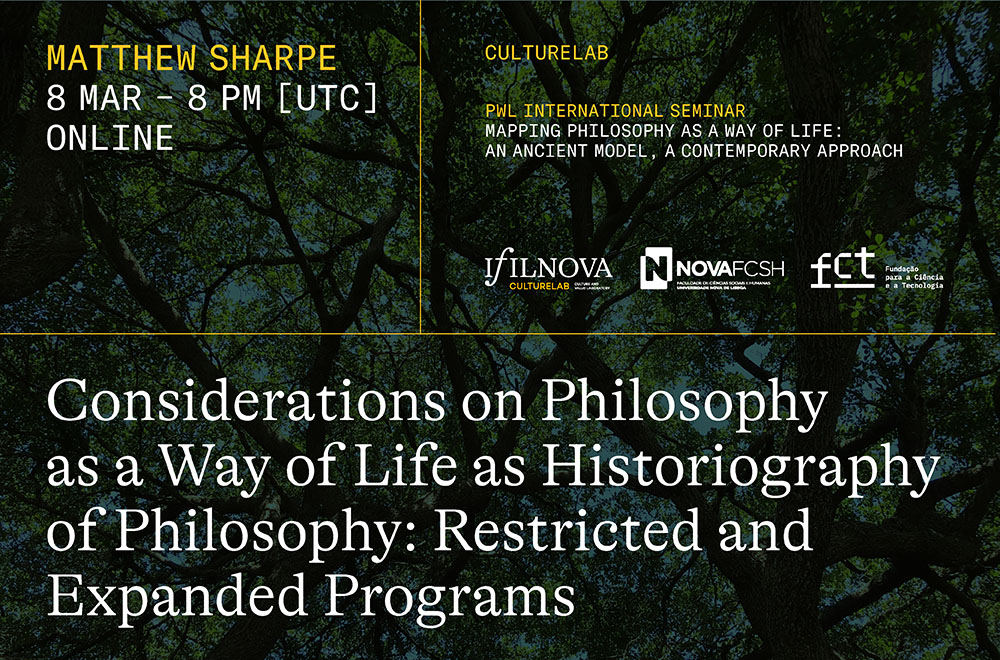Matthew Sharpe

8 March | 8 PM (UTC)
3 PM New York
5 PM Brasilia
8 PM Lisbon
7 AM Melbourne the following day
For other locations click here.
Abstract
Pierre Hadot’s ground-breaking work on ancient philosophy as a way of life has wider implications for how we understand the basic unit of analysis for any history of philosophy (i), whether this history requires an historical or philosophical approach (ii), and the scope of what should counts as philosophy in the history (iii). Part 1 of the paper looks at Hadot’s principal statements concerning how to study the history of philosophy. To draw out Hadot’s stance on the unit of analysis and approach questions (i, ii), we examine first the methodological (1, a) features of his approach to PWL as an historiographical rubric; to bring out his response to the scope question (iii), we turn next (I, b) to the substantive conclusions Hadot draws concerning the history of philosophy. Our account highlights the ways in which Hadot’s approach to the history of philosophy productively ‘squares the circle’ of rational reconstruction and historical contextualisation of past philosophies (ii), expands the scope of the history of philosophy to include neglected figures (iii), and challenges what the basic unit of study for historians of philosophy should be (i). Part 2 then looks at what we call the ‘expanded program’ PWL position in Ian Hunter’s influential work on the history of philosophy and the personae of philosophers. In a first subsection (2, a), we highlight Hunter’s challenges to the approaches (ii) and basic unit(s) of study (i) of other ways of conceiving the history of philosophy. The second subsection, taking Hunter’s work on “the history of theory” as illustrative (2, b), focuses on Hunter’s differing conception of the scope of historiographic analysis (iii) to that we find in Hadot (I, b). In Part 3, having summarised the ground travelled, we critique Hunter’s expanded program PWL approach to the history of philosophy, arguing that in his work, unlike Hadot’s, pushes PWL as historiography into a contentiously relativistic, anti-philosophical direction, in which contextualising is not positioned as a key to recover philosophers’ intentions, but to understand them differently and better than they understood themselves.
Bio
Matthew Sharpe teaches philosophy at Deakin University, having completed his PhD in Philosophy and Social Theory at the University of Melbourne, and MA in Policy Studies at the University of Tasmania. He is the author of six books, including Philosophy as a Way of Life: History, Dimensions, Directions (with M. Ure, Bloomsbury, 2021), and Camus, Philosophe: To Return to Our Beginnings (Brill, 2015/16). He is co-translator of Pierre Hadot’s Selected Writings. Philosophy as Practice (with F. Testa, Bloomsbury, 2020). He is co-editor of the Brill series on “Philosophy as a Way of Life, Texts and Studies”. Over the years, he has edited ten edited collections and journal editions, as well as being the author of numerous articles in leading-rank journals and book chapters on philosophy, social and critical theory. Since 2010, his focus has increasingly become classical receptions and philosophy as a way of life, with a focus on the work of Pierre and Ilsetraut Hadot.

